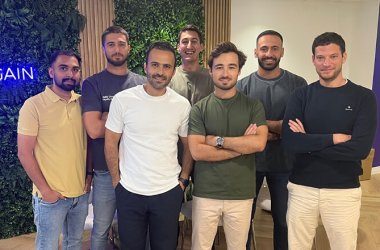IBM has released the regional findings of two significant studies: the 2023 Global AI Adoption Index by Morning Consult with insights from businesses in the United Arab Emirates (UAE) and the biennial consumer study focused on the Middle East and Africa (MEA) by the IBM Institute for Business Value. 
These studies provide a comprehensive look into consumer behaviors and AI adoption trends by enterprises, highlighting the transformative impact of AI in retail and business operations.
Bill Farrell, Managing Partner – IBM Consulting, MEA said, “For UAE businesses, findings show that the integration of AI is not just a competitive edge but a necessity in today’s digital landscape. Similarly, consumer expectations are evolving, underscoring the urgent need for retailers in MEA to embrace AI technologies. IBM’s commitment to innovation and its expertise in AI and hybrid cloud solutions positions it as a key player in supporting these transformations. The company’s focus on trust, transparency, and ethical AI practices aligns with the growing demand for responsible AI deployment.”
UAE Leads in AI Adoption in Business Operations
The IBM Global AI Adoption Index 2023, which surveyed over 8500 IT professionals, including those from the UAE, underscores the rapid adoption and integration of AI in various business sectors.
The study reveals that 65% of IT professionals in the UAE have reported a significant acceleration in AI rollout over the past 24 months, reshaping the way businesses operate, driving efficiency, innovation, and competitiveness in the UAE market.
Highlighting the UAE’s stride towards technological advancement, the country has emerged as a frontrunner in the adoption of AI with a remarkable 42% of companies having already actively deployed it in their business operations.
This figure is particularly noteworthy as it reflects the proactive approach of UAE businesses in integrating AI into their core processes, setting a benchmark for AI implementation in the region.
Investments in AI are also seeing a strategic focus, with research and development, along with workforce upskilling, being identified as the top investment priorities.
This emphasis on R&D and skill enhancement is crucial for sustaining AI growth and innovation, ensuring that the workforce is equipped to handle the evolving demands of AI technologies.
The study further highlights that 34% of UAE companies have a comprehensive AI strategy in place, while an additional 30% are in the process of developing one.
The main drivers propelling AI adoption in the UAE include advances in AI technology, the increasing integration of AI in standard business applications, and the pressing need to reduce costs and automate key processes, collectively contributing to the growing reliance on AI as a critical tool for business efficiency and innovation.
Revolutionize retail with AI everywhere: Customers won’t wait
Meanwhile, IBM’s study “Revolutionize retail with AI everywhere: Customers won’t wait,” surveyed nearly 20,000 global consumers, including from the MEA.
The study highlighted a widening gap between shopper demands and the current retail offering.
Only 3% of MEA consumers are satisfied with the in-store experience, despite the majority of consumers globally (73%) having a preference for physical stores.
At 10 points higher than the global figure, 75% of MEA consumers are supplementing their in-store experience by using mobile applications while shopping demonstrating a trend towards a digitally integrated in-store experience.
In terms of AI, 9 out of 10 MEA consumers who haven’t used AI for shopping are interested in its potential to enhance their shopping journey. Meanwhile, 75% of MEA respondents are eager for AI applications, and 67% for AI enhancements like virtual assistants.
Consumer expectations are rapidly changing, underscoring the urgent need for retailers to innovate and integrate advanced technologies, such as AI, to elevate the shopping experience. The study also serves as a resource for retailers, outlining actionable strategies to help these businesses meet changing consumer demands.





